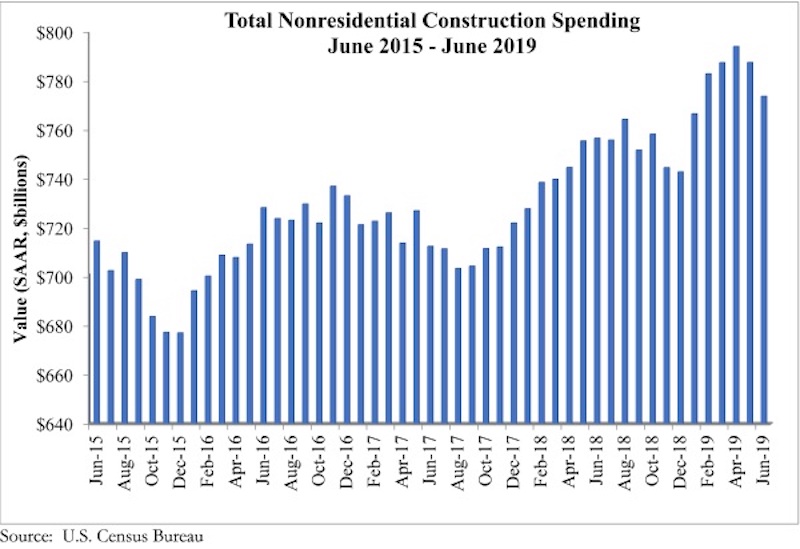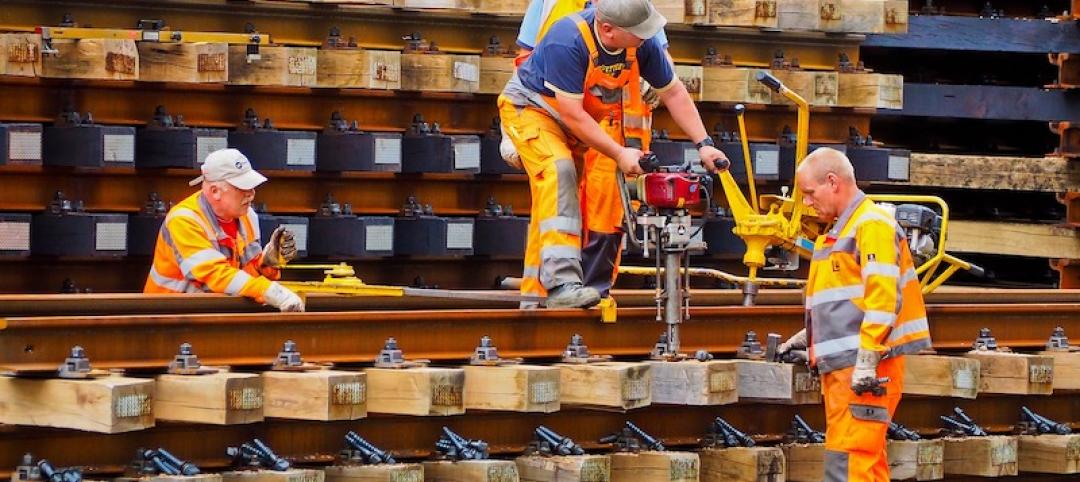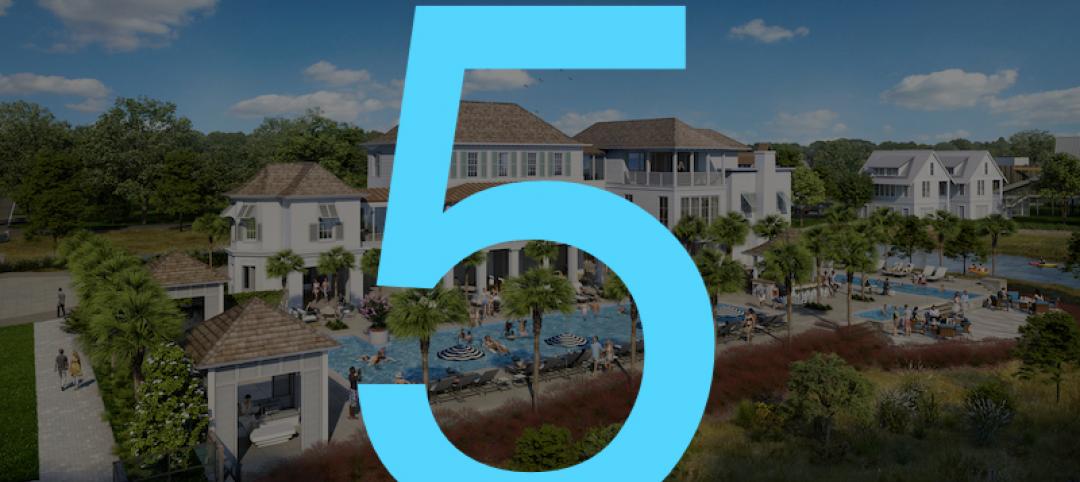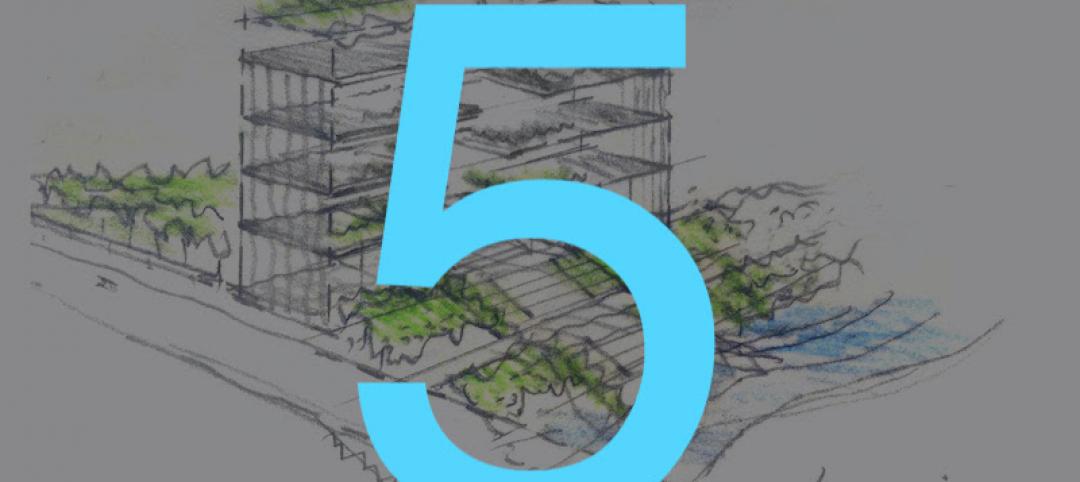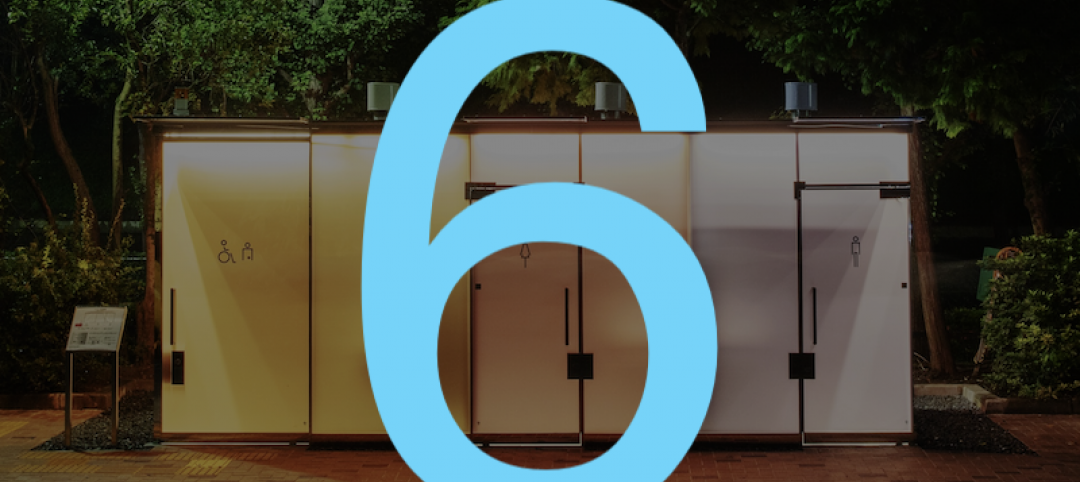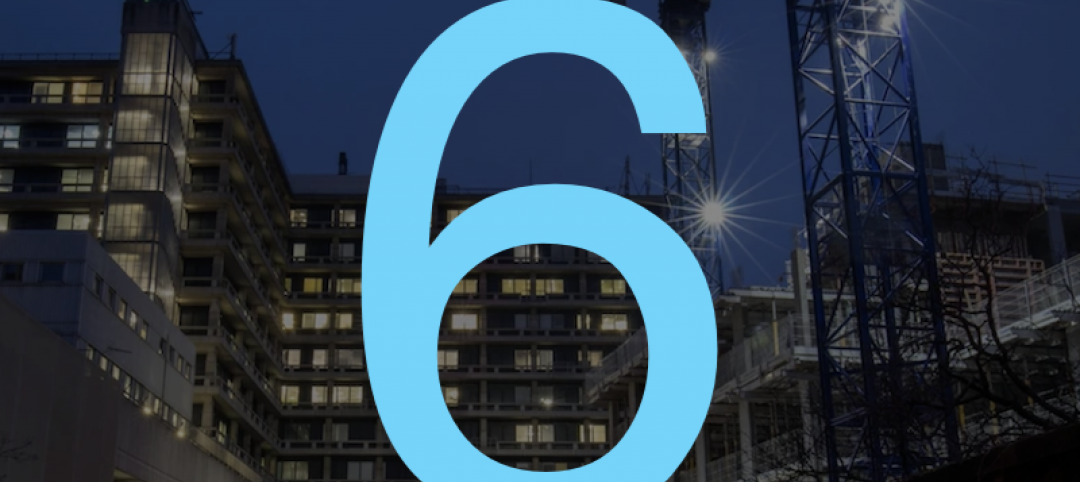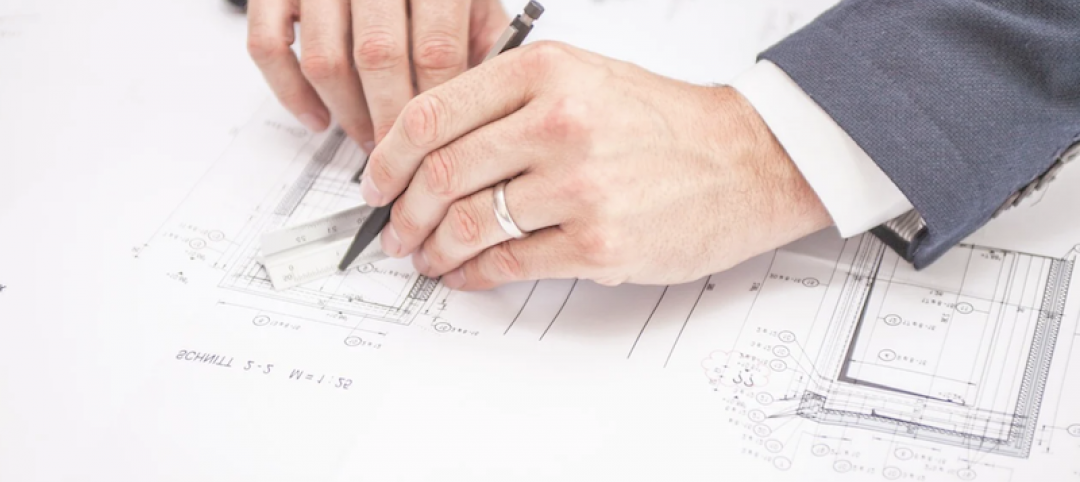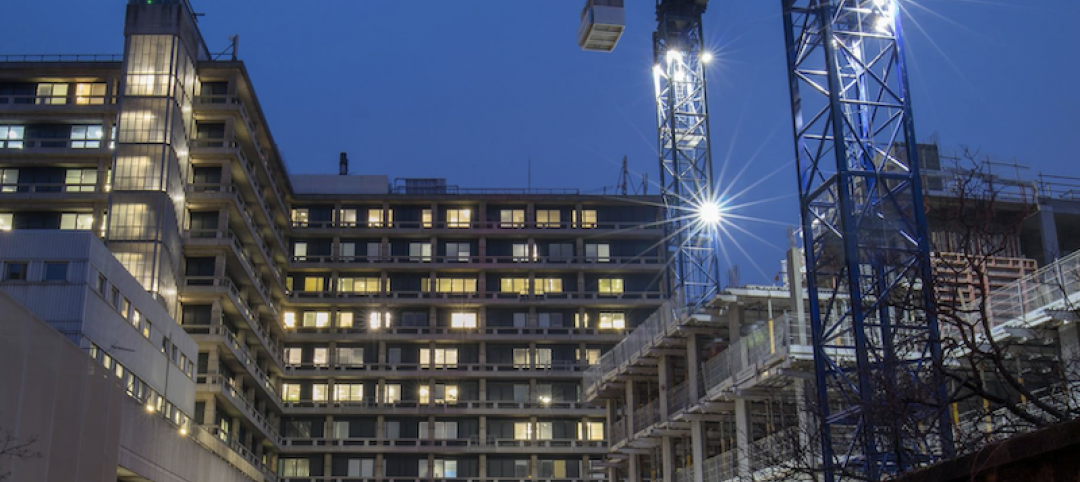National nonresidential construction spending declined 1.8% in June, totaling $773.8 billion on a seasonally adjusted annualized basis—a 2.3% increase compared to the same time a year ago, according to an Associated Builders and Contractors analysis of U.S. Census Bureau data published today. Public nonresidential spending fell 3.7% in June, but is up 6.4% year over year, while private nonresidential spending fell 0.3% on a monthly basis and is up 0.4% from June 2018.
Among the 16 nonresidential construction spending categories tracked by the Census Bureau, seven experienced increases in monthly spending, although only the conservation and development (+3.8%) and commercial (+1.3%) categories increased by more than 1%. While spending in several categories fell for the month, significant decreases in the publicly driven educational (-6.5%) and highway and street (-6.3%) categories accounted for nearly all of the monthly decline.
“Like the balance of the U.S. economy, nonresidential construction spending appears to be softening, albeit gradually,” said ABC Chief Economist Anirban Basu. “Private nonresidential construction spending has been trending lower for several months, and segments like office and lodging are no longer the drivers of construction spending growth that they had been, likely due to growing concerns about market saturation.
“The dip in public construction may have been merely temporary, which is likely the case given the ongoing strength of state and local government finances.” said Basu. “And with the economy still adding substantial numbers of jobs, wages growing at or near a decade-high pace, consumers continuing to spend and property values remaining stable, local and state governments should continue to experience solid income, retail and real estate tax collections. All things being equal, that should help fuel infrastructure outlays, especially given still very low borrowing costs.
“While many observers continue to focus on issues such as trade disputes, high levels of corporate debt and asset prices that are susceptible to sharp declines, the U.S. construction industry’s most significant source of uncertainty may be the pending insolvency of the Highway Trust Fund,” said Basu. “That insolvency is now a mere two years away, and if policymakers fail to act expeditiously, state and local policymakers may choose to postpone certain projects given the rising uncertainty of federal funding. The highway/street and transportation categories are especially vulnerable to such dynamics.”
Related Stories
Market Data | Sep 3, 2020
6 must reads for the AEC industry today: September 3, 2020
New affordable housing comes to the Bronx and California releases guide for state water policy.
Market Data | Sep 2, 2020
Coronavirus has caused significant construction project delays and cancellations
Yet demand for skilled labor is high, new survey finds.
Market Data | Sep 2, 2020
5 must reads for the AEC industry today: September 2, 2020
Precast concrete tower honors United AIrlines Flight 93 victims and public and private nonresidential construction spending slumps.
Market Data | Sep 2, 2020
Public and private nonresidential construction spending slumps in July
Industry employment declines from July 2019 in two-thirds of metros.
Market Data | Aug 31, 2020
5 must reads for the AEC industry today: August 31, 2020
The world's first LEED Platinum integrated campus and reopening campus performance arts centers.
Market Data | Aug 21, 2020
5 must reads for the AEC industry today: August 21, 2020
Student housing in the COVID-19 era and wariness of elevators may stymie office reopening.
Market Data | Aug 20, 2020
6 must reads for the AEC industry today: August 20, 2020
Japan takes on the public restroom and a look at the evolution of retail.
Market Data | Aug 19, 2020
6 must reads for the AEC industry today: August 19, 2020
July architectural billings remained stalled and Florida becomes third state to adopt concrete repair code.
Market Data | Aug 18, 2020
July architectural billings remained stalled
Clients showed reluctance to sign contracts for new design projects during July.
Market Data | Aug 18, 2020
Nonresidential construction industry won’t start growing again until next year’s third quarter
But labor and materials costs are already coming down, according to latest JLL report.


